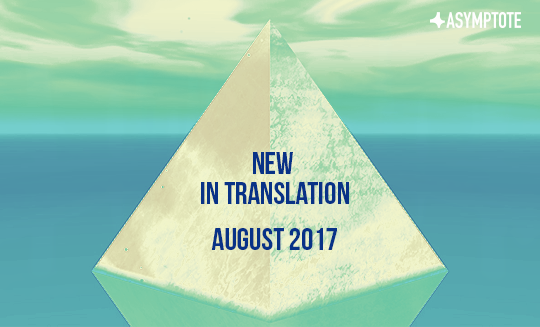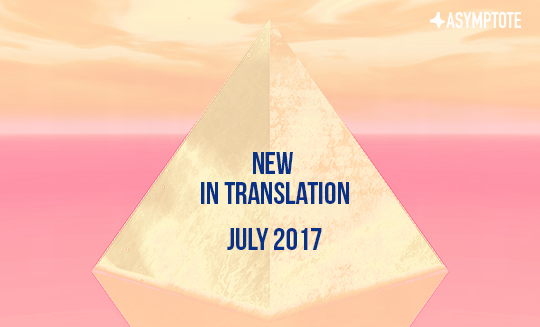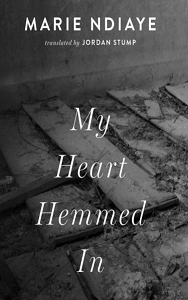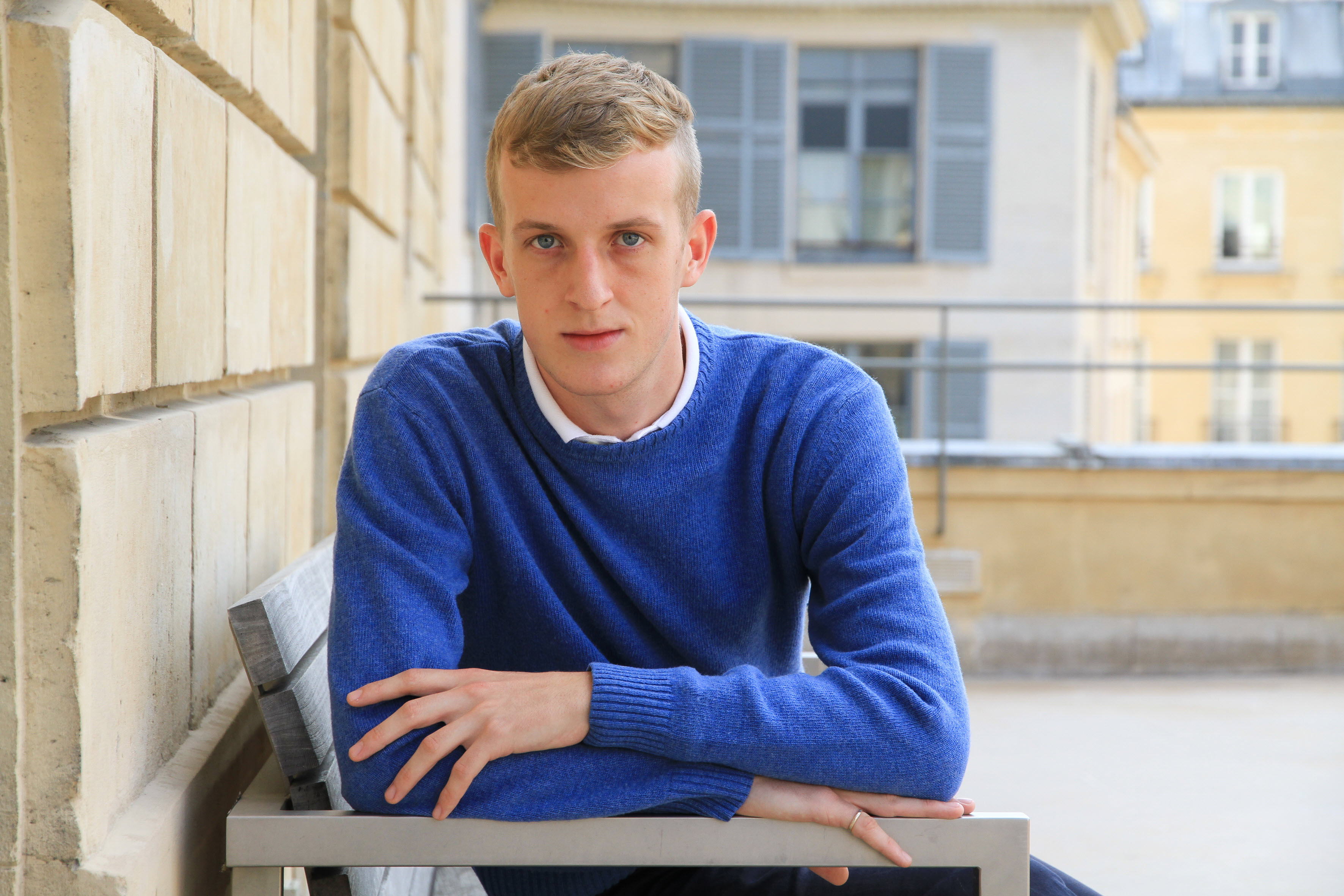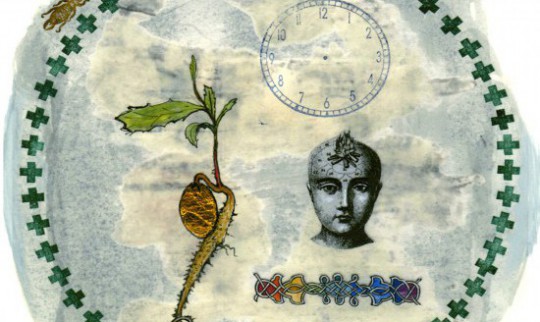It’s Friday and we’re back with the latest news from our Editors-at-Large, providing us with their personal roundups of the most exciting literary developments in their region. We kick off with Jessie Stoolman in Morocco, where there’s never a shortage of intriguing events and publications; Julia Sherwood in Slovakia takes us on a tour of the various cross-cultural literary encounters that have been occurring recently in the Czech Republic; and finally, Omar El Adl gives us some insight into the latest talks, discussions and publications that are taking place right now in Egypt.
Jessie Stoolman, Editor-at-Large, reporting from Morocco:
July was filled with literary events throughout Morocco, starting with a conversation between two Moroccan Prix Concourt winners, Leila Slimani and Tahar Ben Jelloun, at the Minzah Hotel, where they discussed “Comment écrire et publier un livre?” (“How to write and publish a book”) Another star Moroccan author (and painter), Mahi Benibine, whose novel Horses of God, inspired by the 2003 suicide attacks in Casablanca, was made into a critically-acclaimed film, presented his newest novel Le fou du roi at Librairie les insolites in Tangier.
Speaking of new publications from major Moroccan authors, Dar Toubkal’s newly released publication of the poet Mohammed Bennis’ الأعمال النثرية (Works of Prose) was just reviewed in Al-Hayat.
Still staying within the Tangier region, the Galerie Delacoix hosted artists, academics, and students for the الجسد الإجتماعي والمحيط الحضري (Espace urbain & corps social) program and internal working week. Among the participants was Moroccan-French artist and co-founder of the Cinémathèque du Tanger, Yto Berrada. Given continued action from the Al-Hoceima-based protest movement (حراك الريف), the geographer William Kurtz’s talk on “La Globalisation de la Région Tangier Al-Hoceima et son impact sur les inégalites sociales et spatiales” (“Globalization of the Tangier Al-Hoceima Region and its impact on social and spatial inequalities”) was particularly timely.
If that was not enough activity in Tangier, Librairie des Colonnes hosted Zahra Al-Khamleshi, who presented her most recent work, الحدود في شمال المغرب: آمال وآلام النساء الحمالات (Borders in Northern Morocco: Hope and Suffering of Women Porters) on the women who carry products between Ceuta (a Spanish enclave/colony in northern Morocco) and Morocco.
Moving further south, in Casablanca, Kabareh Cheikhats was back again. Their travelling show aims to shed light on the history of Cheikhats, who are often mischaracterized as exotic dancers. Historically, Cheikhats throughout the Maghreb were skilled poets, improvising verses on such controversial topics as resistance to colonization, which they sang and set to music at community gatherings.
Lastly, check out the “Lilipad” project, started by young Moroccan activist Sara Arsalane, which aims to collect books and distribute them to underserved schools throughout Morocco.
Julia Sherwood, Editor-at-Large, with all the latest news from the Czech Republic:
On August 4, as we go to press, Czech poet and literary historian Petr Hruška and Georgian poet and musician Erekle Deisadze are reading from their works in the Ukrainian city of Lviv. Their performance brings to a close a 31-day long marathon tour of five cities, comprising Authors’ Reading Month (Měsíc autorského čtení or MAČ 2017), Central Europe’s largest literary festival. The readings, by two or more authors each day, are broadcast live and the recordings are available online. The festival’s founder Petr Minařík, whose publishing house Větrné mlýny is based in the Czech Republic’s second largest city Brno, has given a wide berth to capital cities, instead locating the festival in four other cities of similar size: Ostrava near the Polish border, Wrocław on the other side of the border in Poland, Košice in eastern Slovakia and, more recently, Lviv in Ukraine.
The guest country of this year’s festival, which kicked off in Brno on 1st July, is Georgia. This country in the Caucasus is fast becoming a trendy tourist destination, yet its literary riches are not all that well known in Central Europe. Thirty-one Georgian writers joined the tour, accompanied by acclaimed Czech authors, among them Ivan Klíma, Arnošt Goldflam, Ivan Binar, Marek Šindelka, Martin Reiner, Michal Viewegh and Jáchym Topol (whose 1995 novel Angel Station, just out from Dalkey Archive Press in Alex Zucker’s English translation, was reviewed by James Hopkin in last week’s Times Literary Supplement). A traditionally strong Slovak contingent was represented by poets Peter Repka and Ivan Štrpka, and fiction writers Balla, Monika Kompaníková, Ondrej Štefánik, Michal Havran, and Silvester Lavrík. Several Ukrainian and Polish writers and poets also took part in some of the readings.
One of the Polish festival participants, Zośka Papużanka, arrived in Brno fresh from another appearance, in Prague, with Czech writer Ivana Myšková. The two women read from their works at the (A)VOID Floating Gallery, a boat moored on the Vltava Riverbank, which serves as an art gallery and a venue for music, theatre and literary readings. Other writers reading there this summer include Ben Aaronovitch and Czech horror story writer Miloš Urban. The gallery provided a more than fitting venue for the launch of a bilingual Czech and English anthology, A Giant Barrel of Rotgut, that “celebrates the Vltava as a river of slain crocodiles, viziers and rotgut.” If that sounds intriguing, you can find out more in this interview with poet Sylva Fischerová on Radio Prague.
And, finally, emerging translators from the Czech (and Slovak) will be interested to hear that Underpass.co, an online journal for modern literature in translation, is seeking submissions specifically from these two languages. The journal aims to offer English-speaking readers a window into new countries, neighbourhoods, cultures, perspectives, and they are especially interested in stories with a strong sense of place.
Omar El Adl, Editor-at-Large, giving us the latest scoop from Egypt:
Alia Mossallam presented a talk on August 3 in the Townhouse gallery in Downtown Cairo. The talk featured her text RAWI which deals with motherhood, writing, and revolutionary politics, according to Mada Masr. Mossallam has collected oral history testimonies in Nubia, Alexandria and Port Said, has been involved in alternative pedagogical structures in Cairo, and her dissertation focused on a popular history of Nasserist Egypt through stories and songs by people behind the 1952 revolution. The text was created as part of a long form essay workshop held in Cairo by 60pages, which describes itself as an international network of writers, artists, thinkers and scientists, based in Berlin. Other texts produced for 60pages include Arab Porn by Youssef Rakha (which will be published as a book featuring Rakha’s photography by Matthes and Seitz Berlin), Migrating the Feminine by Nora Amin and a forthcoming text by Amr Ezzat. The talk was held in Arabic, with a reading of the text in English.
Youssef Rakha is also to write a column as the central character from his Book of the Sultan’s Seal, Mustafa Çorbacı, according to his bimonthly newsletter. Rakha describes this development on his newsletter as follows:
“First, that mad newspaperman Mustafa Çorbacı has resolved to write a column. You may be familiar with Çorbacı from a certain, overrated Book of the Sultan’s Seal. In hopeless pursuit of the same meme, he has named his ephemeral effusions, “Postmuslim.” Raising vaguely relevant questions only to leave them grossly un-dealt with would not be untypical. But if mildly psychotic speculation on being in Cairo today holds some promise of amusement, do humour the unfortunate lunatic by reading and sharing his 400 words.”
According to Rakha, the column will appear printed in Al-Ahram Weekly as well as on this site every Friday starting from July 7.
****
Read More News:


